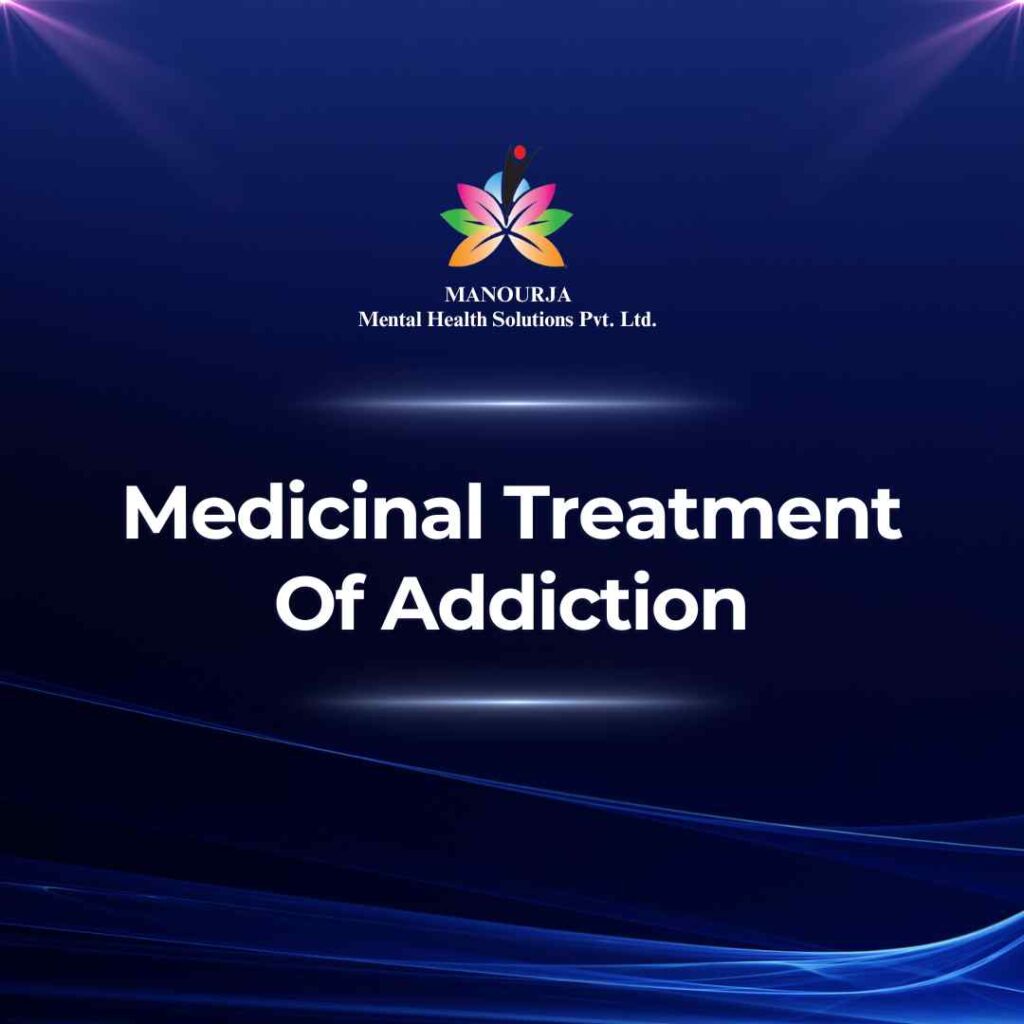Medicinal Treatment for Addiction

Medicinal interventions play a crucial role in the comprehensive treatment of addiction, aiding individuals in managing withdrawal symptoms, reducing cravings, and supporting long-term recovery. These medications are often utilized as part of a broader treatment approach that includes counseling, behavioral therapy, and lifestyle modifications.
Here is an overview of the medicinal treatment options for addiction:
- Opioid Use Disorder
- Methadone: A long-acting opioid agonist that alleviates withdrawal symptoms and cravings without causing euphoria.
- Buprenorphine: A partial opioid agonist that helps manage cravings and withdrawal symptoms, often combined with naloxone to deter misuse.
- Alcohol Use Disorder
- Disulfiram: Creates an aversive reaction when alcohol is consumed, discouraging its intake.Acamprosate: Acamprosate aids individuals in sustaining abstinence by mitigating post-acute withdrawal symptoms.
- Naltrexone: Blocks the euphoric effects of alcohol and reduces cravings.
- Nicotine Addiction
- Nicotine Replacement Therapy (NRT): Includes patches, gum, lozenges, nasal spray, and inhalers to gradually reduce nicotine dependence.
- Varenicline: Reduces cravings by targeting nicotine receptors and mitigates withdrawal symptoms.
- Stimulant Use Disorder
- No FDA-Approved Medications: Currently, there are no specific medications approved for stimulant use disorder. Treatment primarily involves behavioral interventions.
- Benzodiazepine Use Disorder
- Tapering: A gradual reduction of benzodiazepine dosage under medical supervision to manage withdrawal symptoms.
- Flumazenil: An antagonist that may be used in emergency situations to reverse the effects of benzodiazepines.
- Cocaine Use Disorder
- No FDA-Approved Medications: Currently, there are no specific medications approved for cocaine use disorder. Treatment primarily involves behavioral interventions.
- Hallucinogen Use Disorder
- No FDA-Approved Medications: Currently, there are no specific medications approved for hallucinogen use disorder. Treatment primarily involves behavioral interventions.
- Inhalant Use Disorder
- No FDA-Approved Medications: Currently, there are no specific medications approved for inhalant use disorder. Treatment primarily involves behavioral interventions.
- Sedative, Hypnotic, or Anxiolytic Use Disorder
- Tapering: Gradual reduction of sedative dosage under medical supervision to manage withdrawal symptoms.
- Symptomatic Relief: Medications may be prescribed to manage specific withdrawal symptoms, such as insomnia or anxiety.
Medicinal treatment for addiction is highly individualized, and the choice of medication depends on the substance of abuse and the individual’s specific needs and medical history. These medications are typically prescribed and monitored by healthcare professionals, and their use is integrated into a comprehensive treatment plan that addresses the physical, psychological, and social aspects of addiction. It’s important for individuals to work closely with healthcare providers to determine the most effective and safe medication-assisted treatment for their unique circumstances.
At MANOURJA, we believe in the transformative power of counseling. Our experienced therapists offer a safe and supportive space where you can explore your thoughts, emotions, and challenges. Through personalized counselling sessions, we’ll work together to develop coping strategies, build resilience, and achieve lasting positive change. Discover the path to a healthier, happier you with MANOURJA counselling services.
MANOURJA Rehabilitation Services
At MANOURJA, we’re dedicated to helping you in rebuild your life, after difficult times. Our rehabilitation services focus on understanding what you need to move forward, whether you’re recovering from addiction, trauma, or any psychological – social challenges. We create personalized plans, that are all about helping you, regain your strength and find hope again. With a caring team by your side, you’ll have the support to make real progress and take steps toward a brighter, healthier future
